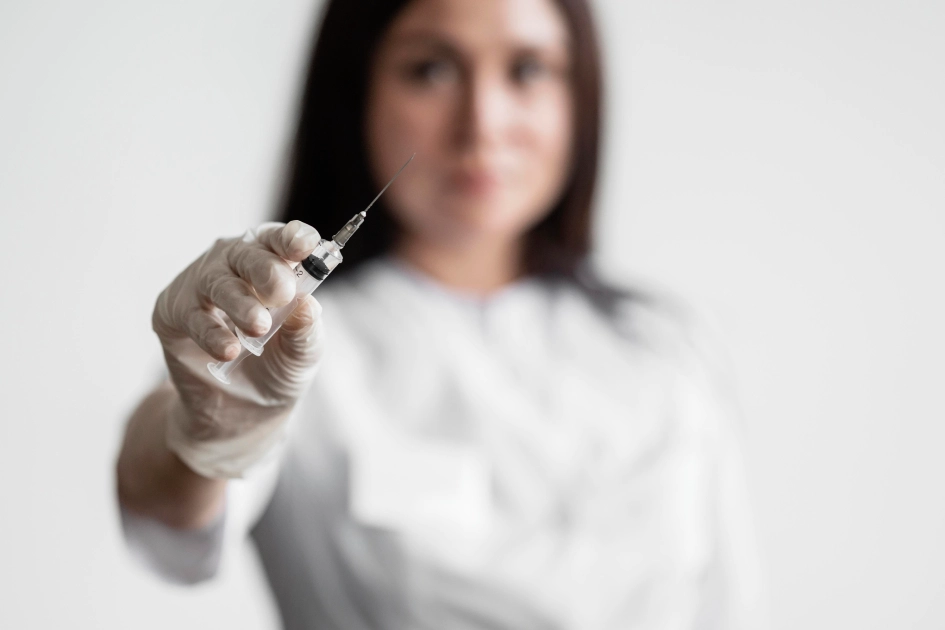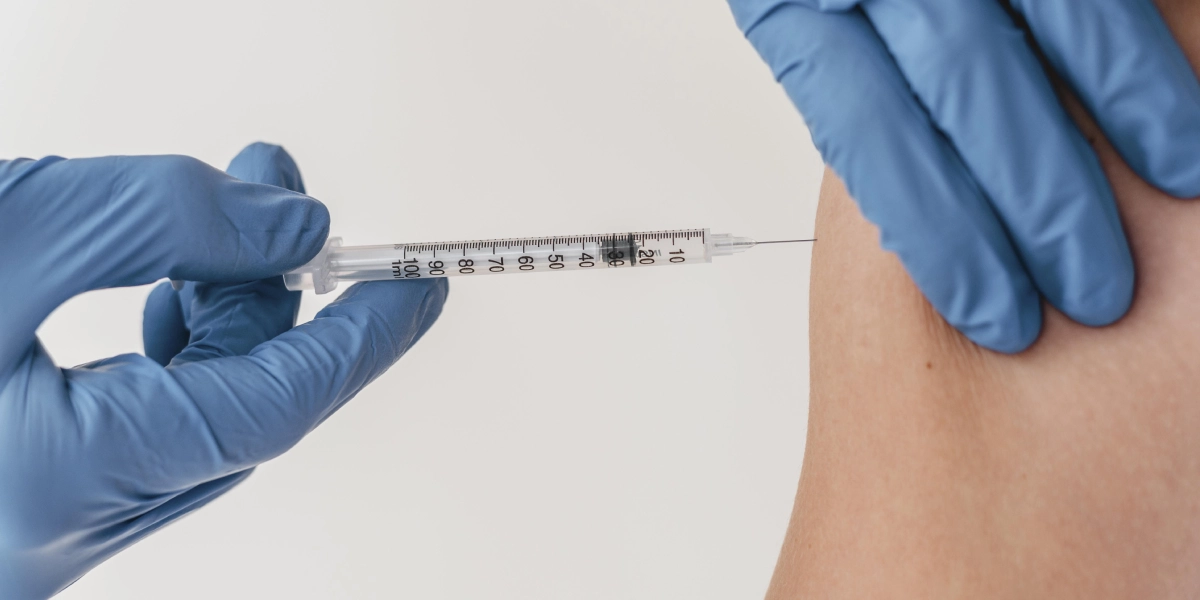The Eli Lilly-based experimental drug is expected to offer a significant weight reduction benefit over other drugs available. Retatrutide helped people lose 24% to 58 pounds during its trial, the company said in an earnings statement. The findings have also been published in the journal.
In the quest for efficacious and safe weight management strategies, there has been an enormous amount of ongoing research and development in the category of weight loss medications.
Retatrutide, a novel therapeutic agent, has sparked considerable interest and intrigue within the scientific community and among individuals grappling with obesity and its associated metabolic health challenges.
Retatrutide, also known by its research code LY3298176, is an investigational drug being developed by Eli Lilly and Company. It’s part of a new class of drugs intended for the treatment of type 2 diabetes and potentially obesity. Retatrutide is unique because it targets three different receptors: GLP-1 (glucagon-like peptide-1), GIP (glucose-dependent insulinotropic polypeptide), and glucagon receptors. This triple agonist approach aims to offer more comprehensive metabolic regulation than drugs targeting a single receptor, potentially providing significant benefits in blood glucose control, weight loss, and overall metabolic health. Retatrutide is marketed for its unique mechanism of action by being a triple agonist of glucose-dependent insulinotropic polypeptide (GIP), glucagon receptors, and glucagon-like peptide 1 (GLP-1) (1,2). The unique mode of action is the reason for promising clinical outcomes and represents a paradigm shift in the approach to weight loss interventions.
In this blog post, we will explore the multi-dimensional approach of Eli Lilly’s retatrutide by delving into its pharmacological underpinnings, therapeutic potential, and implications for individuals striving to achieve sustainable and chronic weight management.
Miracle Weight Loss Drug? How Does Retatrutide For Weight Loss Work?

As a GLP-1 receptor agonist, it mimics the action of the natural hormone GLP-1. GLP-1 is released from the intestines in response to food intake.
When retatrutide activates GLP-1 receptors in the brain, it triggers several responses, including the reduction of appetite and the increase of satiety signals. This effect leads individuals to feel fuller faster and for longer periods, ultimately reducing their food intake.
The activation of GLP-1 receptors in the brain’s appetite-regulating centers plays a crucial role in appetite suppression. Retatrutide not only decreases the desire to eat but also reduces cravings for high-calorie foods, which can contribute to overall calorie reduction and weight loss.
Retatrutide slows down the rate at which the stomach empties its contents into the small intestine. This delay prolongs the feeling of fullness after a meal, as food remains in the stomach for a longer time.
Consequently, individuals consuming smaller portions of food feel satisfied, which can lead to decreased overall calorie intake and weight loss.
Studies suggest that retatrutide may increase energy expenditure or the number of calories burned by the body at rest (3). This effect is particularly significant in adipose tissue, where retatrutide may enhance fat metabolism, leading to increased calorie burning. The net result is a greater calorie deficit, which contributes to weight loss over time.
While primarily indicated for type 2 diabetes management, retatrutide’s ability to improve glycemic control can indirectly support weight loss efforts. By stabilizing blood sugar levels, retatrutide helps prevent fluctuations in energy levels and cravings for sugary or high-calorie foods. This can promote adherence to a calorie-controlled diet, facilitating weight loss.
Retatrutide has been shown to specifically target fat loss, particularly visceral adipose tissue, which is associated with increased health risks.
By promoting the breakdown of stored fat, retatrutide helps individuals reduce body fat percentage and improve body composition, leading to a healthier weight and reduced risk of obesity-related complications.
Benefits of Retatrutide for Weight Loss and Body Weight

Retatrutide, a GLP-1 receptor agonist, works by mimicking the action of the naturally occurring hormone GLP-1. By binding to GLP-1 receptors in the brain, retatrutide helps regulate appetite and reduce food intake.
Subsequent appetite suppression can lead to decreased calorie consumption, making it easier for individuals to achieve and maintain a calorie deficit necessary for weight loss.
Another benefit of retatrutide is its ability to slow down the rate at which the stomach empties its contents into the small intestine. This delay in gastric emptying prolongs feelings of fullness after meals, helping individuals feel satisfied with smaller portions and reducing the frequency of snacking or overeating.
Clinical trials have demonstrated that retatrutide can lead to significant weight loss in individuals who are overweight or obese.
In these studies published in new england journal of medicine, participants treated with retatrutide experienced greater weight loss compared to the placebo group and those receiving a placebo. The weight loss achieved with retatrutide is often substantial and sustained over the course of treatment.
Retatrutide has been shown to specifically target fat loss, particularly visceral adipose tissue—the type of fat stored around organs in the abdomen.
Reductions in visceral fat are particularly beneficial for improving metabolic health and reducing the risk of weight-related conditions such as type 2 diabetes, cardiovascular disease, and fatty liver disease.
In addition to promoting weight loss, retatrutide helps improve glycemic control in individuals with type 2 diabetes. By enhancing insulin secretion and reducing glucagon release, retatrutide helps regulate blood sugar levels.
Better blood sugar control can reduce cravings for high-calorie foods and stabilize energy levels, making it easier for individuals to adhere to a calorie-controlled diet and achieve weight loss goals.
Some research suggests that retatrutide may offer cardiovascular benefits beyond its effects on weight and glycemic control. In clinical trials, retatrutide has been associated with reductions in blood pressure and improvements in lipid profiles, including reductions in total cholesterol, LDL cholesterol, and triglycerides.
These cardiovascular benefits are particularly important for individuals who are overweight or obese, as they can help reduce the risk of heart disease and stroke.
Retatrutide can be a valuable tool for treating obesity and for chronic weight management. By helping individuals establish healthier eating habits, reduce calorie intake, and lose excess body fat, retatrutide supports sustainable weight loss and reduces the likelihood of weight regain over time.
How Much Time Does it take for Retatrutide to cause Weight Loss?

The timeframe for experiencing the effects of this weight loss drug can vary from person to person. However, clinical studies have shown that significant weight loss can occur within a relatively short period after starting treatment compared to other weight loss medications.
In clinical trials evaluating the efficacy of retatrutide for weight loss, participants typically experienced noticeable reductions in body weight within the first few weeks to months of treatment. Some studies have reported significant weight loss as early as 12 weeks after initiating retatrutide therapy.
It’s essential to note that individual responses to retatrutide may differ based on factors such as starting weight, adherence to treatment, lifestyle factors (such as diet and exercise), and underlying health conditions. Additionally, the rate of weight loss may slow down over time as the body adapts to the medication.
For many individuals, retatrutide reduces body weight as well as glycemic control in the longer run. Therefore, the benefits of weight loss may continue to accumulate over time with consistent use of the medication and adherence to healthy lifestyle habits.
Overall, while some individuals may notice significant weight reduction relatively quickly after starting retatrutide, it’s essential to have realistic expectations and to focus on the long-term benefits of treatment in achieving and maintaining a healthier body weight.
It is imperative to mention that retatrutide is still under a phase 3 clinical trial, and needs to be FDA-approved before getting introduced in the market openly.
Other Potential Health Benefits of Retatrutide
Retatrutide Regulate Blood Sugar Levels
– GLP-1 Receptor Agonism: Like other GLP-1 receptor agonists, retatrutide helps lower blood glucose levels by enhancing insulin secretion in response to meals, suppressing glucagon release (which otherwise raises blood glucose), and slowing gastric emptying to reduce postprandial (after-meal) glucose spikes.
– GIP Receptor Agonism: Targeting the GIP receptor further supports insulin release and may improve the efficiency of how the body uses glucose, thus contributing to better glucose control.
– Glucagon Receptor Agonism: Although glucagon typically raises blood glucose levels, its action in the context of retatrutide is thought to contribute to energy expenditure and weight loss, which can indirectly improve insulin sensitivity and glucose metabolism.
Clinical Studies and Potential Benefits:
Early clinical trials of retatrutide have shown promising results in improving glycemic control and inducing significant weight loss in people with type 2 diabetes, which are key factors in managing the disease and reducing the risk of complications. The triple receptor action of retatrutide not only aims at blood glucose regulation but also addresses obesity, a major risk factor for developing type 2 diabetes.
Retatrutide May have Potential to Reduce Cardiovascular Disease
Potential Impact on Cardiovascular Disease:
1. Improved Metabolic Profiles: Retatrutide’s ability to improve blood glucose levels and facilitate weight loss could indirectly benefit cardiovascular health. Both type 2 diabetes and obesity are significant risk factors for cardiovascular disease, including heart disease and stroke. By addressing these underlying conditions, retatrutide may help reduce the overall risk of developing CVD.
2. GLP-1 Receptor Agonism and Cardiovascular Benefits: Drugs that activate the GLP-1 receptor have been associated with cardiovascular benefits in several studies. Some GLP-1 receptor agonists have been shown to reduce major adverse cardiovascular events (MACE), such as heart attack, stroke, and cardiovascular death, in people with type 2 diabetes at high risk of CVD. Given retatrutide’s action on the GLP-1 receptor, there is interest in its potential to confer similar cardiovascular benefits.
3. Effects of GIP and Glucagon Receptor Agonism: The impacts of GIP receptor agonism and glucagon receptor agonism on cardiovascular health are less well-defined compared to GLP-1 receptor agonism. The novel combination of actions in retatrutide may offer unique benefits or interactions that could influence cardiovascular outcomes. However, the specific effects on cardiovascular disease risk and outcomes need to be clarified through clinical research.
Ongoing Research:
Clinical trials are essential to determine not only the efficacy and safety of retatrutide in managing blood glucose levels and promoting weight loss but also its direct and indirect effects on cardiovascular health. Such studies will include monitoring for cardiovascular outcomes among other safety and efficacy endpoints.
Considerations and Development Status:
Retatrutide was still under investigation, and like all investigational drugs, it must undergo rigorous clinical trials to fully understand its safety profile, efficacy, and potential side effects before it can receive approval from regulatory bodies such as the U.S. Food and Drug Administration (FDA). The outcomes of ongoing and future studies will determine its place in the treatment landscape for type 2 diabetes and possibly obesity.
Healthcare professionals and patients are watching closely for the results of these studies, as retatrutide represents an innovative approach to managing two of the most challenging aspects of metabolic health: glucose control and weight management.
References:
- Urva, S., Coskun, T., Loh, M. T., Du, Y., Thomas, M. K., Gurbuz, S., Haupt, A., Benson, C. T., Hernandez-Illas, M., D’Alessio, D. A., & Milicevic, Z. (2022). LY3437943, a novel triple GIP, GLP-1, and glucagon receptor agonist in people with type 2 diabetes: a phase 1b, multicentre, double-blind, placebo-controlled, randomised, multiple-ascending dose trial. Lancet (London, England), 400(10366), 1869–1881.
- Coskun, T., Urva, S., Roell, W. C., Qu, H., Loghin, C., Moyers, J. S., O’Farrell, L. S., Briere, D. A., Sloop, K. W., Thomas, M. K., Pirro, V., Wainscott, D. B., Willard, F. S., Abernathy, M., Morford, L., Du, Y., Benson, C., Gimeno, R. E., Haupt, A., & Milicevic, Z. (2022). LY3437943, a novel triple glucagon, GIP, and GLP-1 receptor agonist for glycemic control and fat loss: From discovery to clinical proof of concept. Cell metabolism, 34(9), 1234–1247.e9.
- Coskun, T., Urva, S., Roell, W. C., Qu, H., Loghin, C., Moyers, J. S., O’Farrell, L. S., Briere, D. A., Sloop, K. W., Thomas, M. K., Pirro, V., Wainscott, D. B., Willard, F. S., Abernathy, M., Morford, L., Du, Y., Benson, C., Gimeno, R. E., Haupt, A., & Milicevic, Z. (2022). LY3437943, a novel triple glucagon, GIP, and GLP-1 receptor agonist for glycemic control and fat loss: From discovery to clinical proof of concept. Cell metabolism, 34(9), 1234–1247.e9.
How much weight can you lose on retatrutide?
Bodyweight reductions of 25% or more were common in participants undergoing treatment with retatrutide if taken with at least 2 mg. Retatrolides were used for weight loss as a dietary supplement and were used in 24% of the group.
When will retatrutide be approved for weight loss?
Retatrutide can be injected through the injection of a drop of water twice per week. Status – Phase 3 weight loss studies are underway. This project will be completed by 2026. If the results of the study were positive, the FDA could approve it.
What does the drug retatrutide do?
Retatrutide activates glucan-related receptors in gastrointestinal tracts and a variety of gastrointestinal system which help to control appetite for food and make consuming more lasting. It regulates the level of blood sugar, which helps in reducing weight.
Is retatrutide the same as Ozempic?
Although the drug is classified as a similar drug to weight-loss medicines it has a unique feature. Ozempic and Wegovy contain no GLP-1 receptor antagonist, and they have been shown to reduce diabetes in humans.
Is retatrutide on the market yet?
Retatrutide will undergo Phase Three clinical studies by Eli Lilly Co for Obesity. In the case of obesity, Phase I and II drug development have an indication benchmark of 44% PTSR.
How long until retatrutide is available?
Clinical trials have a target of completion by December 2020, Gov. Roberts said. Once the results are positive, the drug must pass a thorough FDA review. Skovronsky hopes retatrutide could help reduce weight as if surgery did not have any side-effects.
Can I get a prescription for retatrutide?
Do Doctors Prescription of Retatrutabine? The drug is currently undergoing Phase 3 trials that will not end in 2025 or 2026.
Is retatrutide the same as tirzepatide?
Tirzipatide, injectable drug, targets two obese hormones, glucagon-like proteins 1 and 2 org – or glucocoron.
What is the retatrutide peptide?
LY3437943, or rtatrutides, are antagonists of insulin-dependent glucose-dependent insulin-sensitive polypeptide Glucagon-1 or glucagon-like receptors. The relation doses/reason for obesity treatment has been unknown to date.
What are the side effects of retatrutide?
Retatrutide’s predominant treatment adverse effects have been identified as mild or moderate digestive issues such as urination, diarrhea and constipation. This event also revealed an influence on the dosages used to administer it.
What is retatrutide used for?
Retatrutide enables the glucogon-like receptor GIP to control appetite and a healthy body weight. This regulates blood pressure, which results in reducing the weight.
Is retatrutide a peptide?
Glucagon is one of several agonist-active peptides that are able to elicit a glucose-lowering and body weight-loss effect on human obesity by reducing glucose levels.
What are the schedule of doses for retatrutide?
The dose of 2mg was gradually increased from 3mg to 4 mg and the dosage increased from 8mg until the maintenance dose of 12mg was increased.
What’s the difference between tirzepatide and retatrutide?
Similar to samaglutide, Retraititide affects GLP-1 and as with tirzepatide affects GIP. It further enhances the interaction with receptors of another hormone, Glucagon, which controls blood glucose levels.
When will retatrutide be available in USA?
Three late-stage trials intended to test the effectiveness and safety of dietary supplements in obese people started last week and could run into 2021. FDA officials say the drug will not be available until at least two years from now if the trial goes well.
Can you get a prescription for retatrutide?
Do I require antibiotics for withdrawal? The retatrutide prescription could not be issued before 2025 or 2027 because it’s currently undergoing clinical trials that will last for two to five years and could potentially cost more than $300 million.


